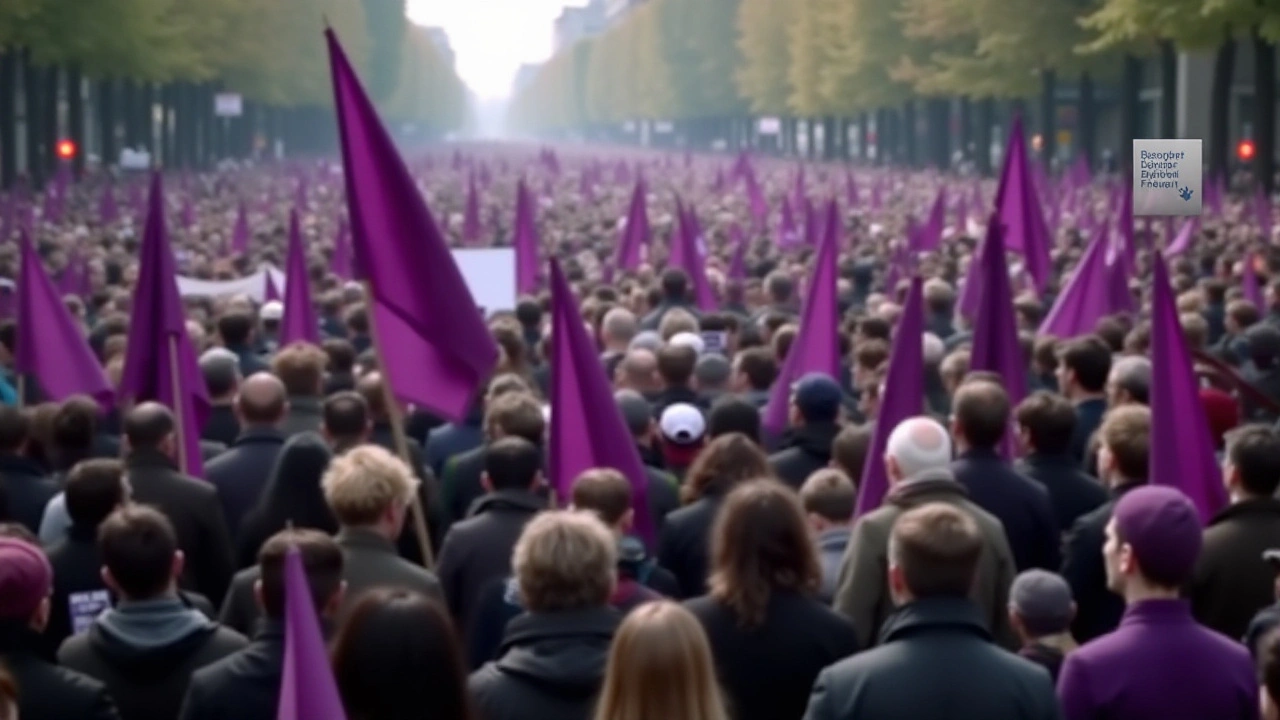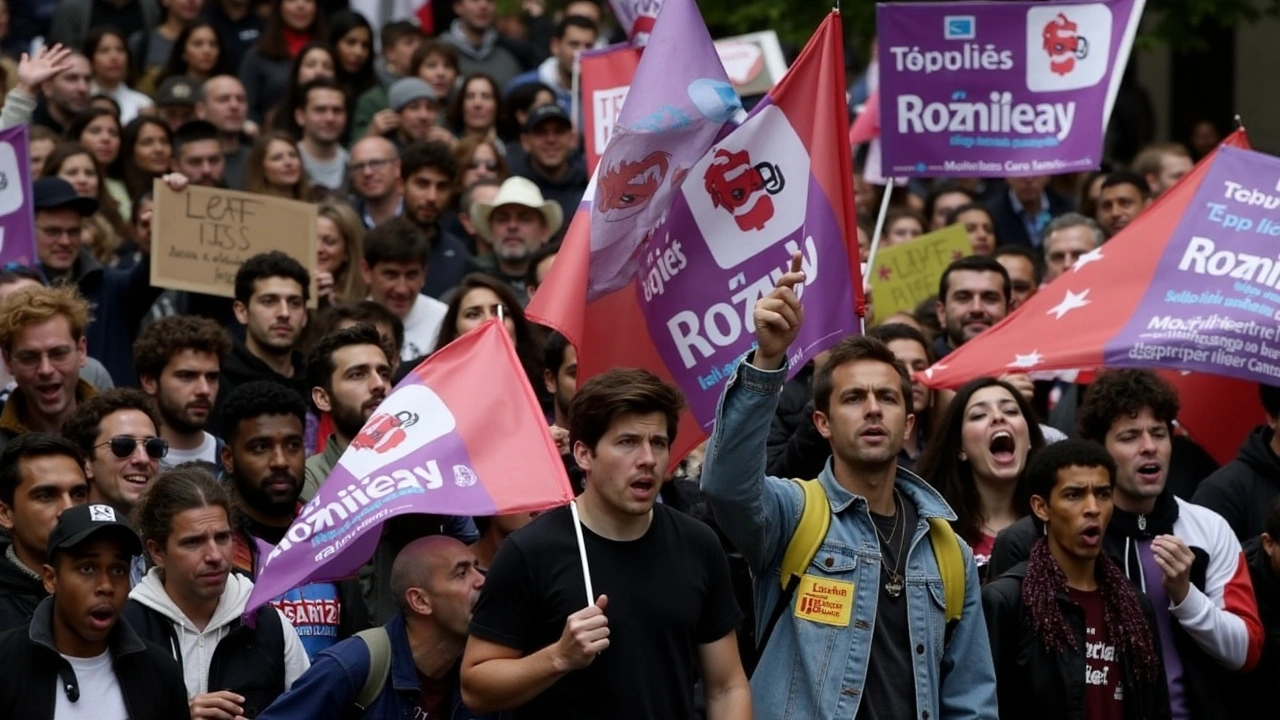Massive Left-Wing Protests Ignite Amid Barnier's Prime Minister Appointment in France
 Sep, 8 2024
Sep, 8 2024
Massive Left-Wing Protests Ignite Amid Barnier's Prime Minister Appointment in France
On a recent Saturday, thousands of French citizens took to the streets in full force, expressing their resentment and disappointment towards President Emmanuel Macron's decision to appoint Michel Barnier as the new prime minister of France. Barnier, notably known for his role as the European Union's chief Brexit negotiator, has a long-standing reputation as a centre-right politician. His controversial appointment follows a particularly tumultuous period in French politics, characterized by a two-month deadlock after an unexpected snap legislative election. This election yielded a fragmented parliament, with no single party securing a clear majority. Among the chaos, the left-wing New Popular Front (NPF) emerged as the largest group, though they remained shy of an outright majority.
This gap, however, did not deter Macron from making a decision that has now sparked widespread dissent. Despite the NPF's significant gains, Macron opted not to select a candidate from their ranks, an action that many have interpreted as an outright dismissal of the people's voice. The leftist factions have not taken kindly to this move, leading the protestors to vociferously accuse Macron of undermining democratic principles and disregarding the election results. According to a recent poll, a staggering 74% of French citizens hold the sentiment that Macron has blatantly neglected the will of the electorate, while 55% are convinced that he has, in essence, 'stolen' the elections.
The magnitude of the public's feelings was made evident as an estimated 130 demonstrations were held nationwide. Leaders from various left-wing parties, labor unions, and student organizations joined hands to orchestrate these protests. The overwhelming turnout unmistakably underlined the collective voice of dissatisfaction, echoing through city streets and town squares.
Barnier's Contentious Selection
Barnier's appointment has been particularly contentious, given his affiliation with the centre-right Les Républicains party, which manages to hold just below 50 seats in the parliament. The move clearly illustrates the fragile state of French political equilibrium. Not only does Barnier's party lack substantial parliamentary strength, but his ability to govern effectively and put forth necessary reforms—particularly concerning the urgent 2025 budget—hinges precariously on conditional support from unexpected quarters.
One such corner of conditional allegiance comes from Marine Le Pen's far-right National Rally (RN). The RN, known for its strong nationalist stance, has signaled a willingness to abstain from a no-confidence vote, potentially offering a lifeline for Barnier. This realignment within French politics has, unsurprisingly, added to the public's unease, painting an even murkier picture of the nation's immediate political future. The RN now finds itself precariously positioned as a pivotal player in the new government—an outcome that further fuels the flames of discontent among the general populace and political analysts alike.
Democratic Concerns Amid Political Juggling
This series of events has unmistakably sown the seeds of deep divisions within French politics, shaking the very core of its democratic foundations. The dissatisfaction swells not just within the populace but extends through various political factions, each grappling with its share of the power grab while trying to hold on to ideological commitments. The scenario spells out a textbook case of political disarray in one of Europe's major democratic nations.
With parliamentary sessions set to review the 2025 budget in early October, the looming threat of a no-confidence vote constantly hangs over Barnier's tenure, escalating the stakes involved. The fiscal situation and subsequent political ramifications present a critical test for Barnier's leadership and the broader democratic fabric of France.
These numerous and profound dynamics underscore the number of forces at play, from electoral defiance to legislative brinkmanship. Barnier's entry into the prime minister's office is a mere beginning to what looks like an arduous path rife with political minefields. The ongoing protests undeniably cast a long shadow over Barnier's capacity to steer the nation through a period marked by upheaval and uncertainty.
A Nation Divided
Saturday's demonstrations brought together an array of Left-leaning groups and individuals, each bearing their own grievances yet united in their disapproval of Macron’s appointment of Barnier. From the cobblestone streets of Paris to the southern regions of Marseille, the intensity of the protests reflected the extent to which Macron's decision has struck a chord with the French public. The protesters chanted slogans, wielded placards, and in some instances, engaged in passionate speeches about the future of French democracy.
As with any movement of such a scale, the protests carried a mixture of energies—some voicing genuine concern for the state of democracy, while others viewed the occasion as a chance to criticize the broader neoliberal economic stance of Macron's administration. The political backdrop of Barnier's tenure played a central theme as orators took to makeshift stages, spelling out their fears of what a centre-right government, dependent on far-right abstention, could mean for the future. There was palpable anxiety about the legislative directions Barnier might pursue and their potential impacts on France's social fabric.
With many demonstrators expressing doubt over Barnier's capacity to achieve meaningful reforms or to transcend political gridlock, the overarching sentiment remained one of skepticism. Could a politician from a party with such minimal representation truly manage a fractured parliament and a distrusting public?
The Influence of the New Popular Front
Another layer of complexity adds to the mix as the New Popular Front continues to assert its position as a dominant voice on the left. Spearheaded by charismatic leaders, the NPF refused to fade into the background despite being side-stepped by Macron. They have organized substantial segments of these protests, mobilizing their base to showcase their ongoing relevance and readiness to challenge the government.
In a significant political milieu, the NPF's rise, though impressive, serves as a reminder of the fragmented nature of current French politics. They represent a diverse coalition of leftist ideologies, from socialists to progressives, each united by an overarching desire for deeper representation in government. Their exclusion from the highest echelons of political power feels like a betrayal to their supporters, who were fervent in their support during the elections. This emotional fervor is an essential aspect of the recent protests, with many chanting slogans directly lambasting Macron's alleged disregard for democratic norms.

What Lies Ahead
The foreseeable future seems anything but clear. As Barnier navigates his new role, he stands on precarious grounds, needing to balance delicate political alliances while addressing an array of pressing issues. From managing economic recovery in a post-pandemic world to reassuring a deeply divided populace, his tenure as prime minister will be marked by significant challenges.
The budget review in October promises to be a crucial test, where Barnier's ability to negotiate and build coalitions will face the ultimate examination. With significant opposition both from the left and skepticism from centrists and right-wing factions, his strategies and policy directions will unequivocally shape France's immediate future. Meanwhile, the protests have set a powerful precedent, suggesting that the French public will continue to hold their leaders accountable in very vocal and demonstrative ways.
You can be certain that these unfolding events will be keenly watched, with every move from Barnier and Macron subjected to intense scrutiny. The very essence of French politics is under a microscope, as the nation strives to find a balance between electoral results and the practicalities of governance. This critical juncture in French democratic history reminds us all that the power of the people remains a formidable force, capable of shaping and reshaping the contours of governance.